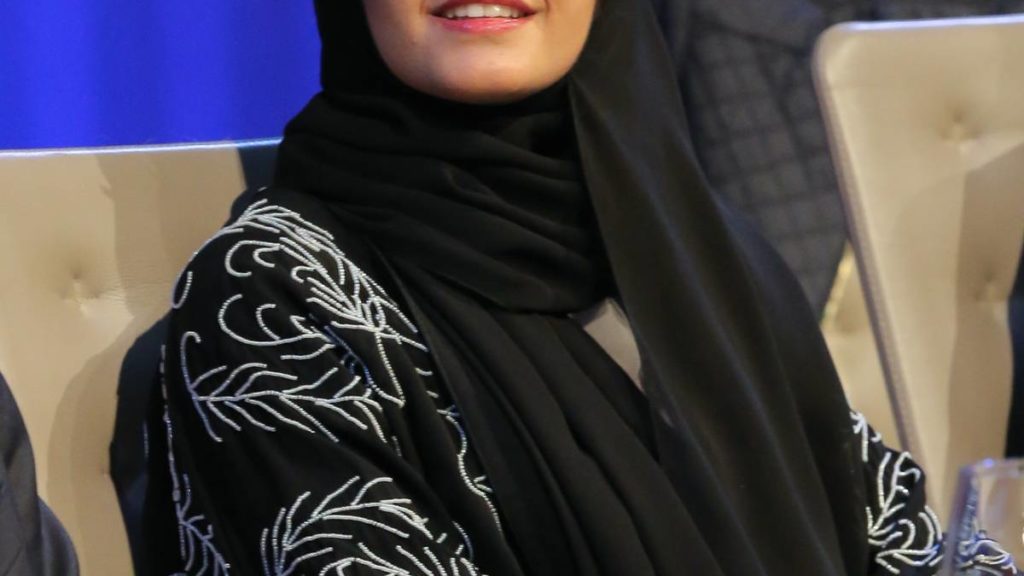Georgetown Students Prepare to Graduate, and Change the World

It’s that time of year in Doha when one of the most notable milestones in a person’s life is recognized with barely contained excitement, inspiring formality, and an eye to the future: college graduation. Even as frenetic construction efforts continue putting the final touches on Education City, young men and women are preparing to don the traditional cap and gown to mark the transition from student to graduate.
Georgetown University in Qatar (GU-Q) students Hessa Al Noaimi, Deena Newaz, and Thanos Sardellis, are just three of the 68 GU-Q students who will be joining 340 alumni who have worn the cap and gown since the school first opened its Doha campus doors in 2005. And they also represent the promise of a liberal arts education that is gaining value in a region seeking to diversify the economy and workforce as a critical step in building a sustainable future. The impact of that education is already being felt.
“We have to break out of the box that assumes all Qataris share the same background, the same opportunities with no incentives to work or succeed in education because they’re all seemingly privileged.” Hessa Al Noaimi, a Qatari student who followed in her sister’s footsteps to study at Georgetown, speaks passionately about education, and feels that the focus on English, while a vital aspect of education in a globalized world, has left her Arabic-speaking cohort struggling to succeed in either language. “The lack of incentive is not the only problem, but it’s also the issue of language proficiency in both Arabic and English. Lacking the ability to express yourself confidently in a certain language is bound to disenfranchise anyone.”
She credits the Heritage Learners Arabic language program for native speakers pioneered at GU-Q for changing the way she views the challenges her generation faces, as well as the solutions for them. “I’m Qatari, but I attended English-language schools my whole life. “I only became proficient in Standard Arabic (fus-ha) here in GU-Q”, which was both enlightening and traumatic. I realized I lost something for not being exposed to Arab history, culture, and arts – it took an American university to teach me that.”
She pursued an Honors thesis in her major titled “Acknowledging the Lost Generation: A Study of English in Qatar’s Education System”. After graduation, she hopes to work for Teach for Qatar, with plans to eventually pursue a graduate degree in education.
The experience of an international affairs education that Georgetown offers benefits from the unique diversity of its Doha campus. That includes Thanos Sardellis who came to GU-Q from Greece. Once he settled in, Thanos didn’t waste any time, joining the GU-Q football and basketball teams and taking part in the Model United Nations.
“I also traveled to Ireland with the award-winning Zones of Conflict, Zones of Peace program, which takes students to areas of ethnic, political, religious and social conflict, in order to better understand the causes of the conflict and the process of reconciliation. At Georgetown, there is this big focus on ‘learning outside of the classroom’, and this is the first time I really experienced that.”
But it was his participation in The Hoya Empowerment and Learning Program, or HELP, which encourages students to volunteer their time teaching English and other skills to participating staff, that had the most impact on him. “I started HELP with an interest of giving back to my community, but in the process, it changed me and my campus experience.”
For Thanos, the world is his oyster, and he looks forward to exploring teaching opportunities in Latin America after graduation.
“You’re constantly facing world events at GU-Q. So I’m excited to graduate,” says Deena Newaz, who is also a Culture and Politics major, undeterred by the mounting negative news headlines from across the globe. Deena, who was born and raised in Doha, chose a major that would help her shed light on issues that are the most important to her.
“Initially I chose CULP because I wanted to study gender and violence in the Global South, and this was the only major to work with Subaltern studies, which focuses on groups that lack social mobility.”
She recently finished her Honors thesis on the ethics of giving a voice to the abuse victims of the 1971 war in Bangladesh. “I argued that academic and state narratives are caught up in different stakeholders. It’s important to recognize the stories of these women without re-traumatizing them and without laying claim to the truth.”
Deena will also be graduating with a Certificate in American Studies, the equivalent of a minor degree in Georgetown. Her thesis “Capturing the Ferguson Movement in 140 Characters or Less” studied the role of twitter in social movements.
“In high school, I focused on math and science, and majored in biology. I was all set to go to medical school. I wanted to change the world.” She says her parents support of her career change made all the difference.
“When you come to Georgetown, you unlearn things you knew, you gain valuable experiences, skills, and develop intellectually. You become critical and compassionate about everything that’s going on. And then that’s when you discover that though you came to school to change the world, it’s you who is changed.”